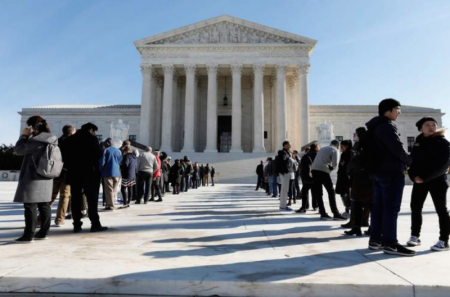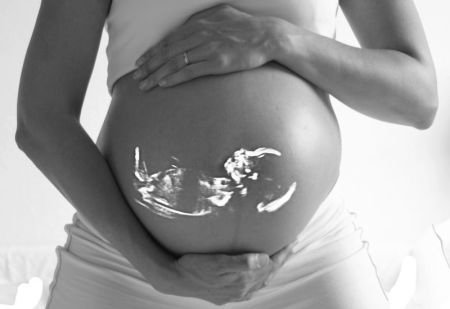Supreme Court Vacates Lower Court Ruling That Allowed Immigrant Teen to Get an Abortion

The U.S. Supreme Court vacated a precedent-setting lower court ruling on Monday that allowed a 17-year-old undocumented immigrant to get an abortion last fall, but rejected a request from the administration of President Donald Trump to continue a policy of prohibiting immigrant minors from accessing abortions while an appeal is pending against that policy.
Although the teenager who was represented by the American Civil Liberties Union and identified as just "Jane Doe" in court papers already underwent an abortion in Texas on Oct. 25, the Trump administration celebrated Monday's unanimous Azar v. Garza ruling because it eliminated a precedent at the federal appeals court level that could have applied to other detained minors seeking abortions, according to Reuters.
"The Supreme Court has repeatedly made clear that the federal government is not required to facilitate abortions for minors and may choose policies favoring life over abortion. We look forward to continuing to press the government's interest in the sanctity of life," Justice Department spokeswoman Kerri Kupec told the news agency.
Ed Whelan, president of the Ethics and Public Policy Center called the ruling a "big victory" for the government in an op-ed Monday.
"This action by the Supreme Court is a big victory for the Department of Justice and for Solicitor General Noel Francisco, all the more so as some folks on the Left slammed DOJ's certiorari petition as patently meritless and as 'fundamentally a press release,'" he wrote.

The ruling comes after a U.S. District Judge Tanya Chutkan issued an injunction on March 30, preventing the Trump administration from blocking detained immigrant minors from accessing abortions. She also certified a class action of similar minors to challenge the administration's policy.
In a statement Monday evening, Brigitte Amiri, a lawyer with the ACLU's Reproductive Freedom Project, played down the decision and argued that the ruling does not diminish a case the organization filed in October, seeking a decision on obtaining abortions that would apply in future similar cases.
"The court's ruling does not affect the ongoing case in any way. It doesn't diminish the district court's order that initially blocked the government's cruel policy for a class of pregnant minors in the government's custody. It also does not say anything about the constitutional question presented in the underlying case, namely whether the government can violate decades of Supreme Court precedent by banning abortion for unaccompanied minors," Amiri wrote.
"The district court issued an order on March 30, 2018, allowing the case to proceed as a class action and issued a preliminary injunction blocking the government's no-abortion policy. The government appealed that decision, and it also asked for the court of appeals to allow the policy to go back into effect while the appeal is pending. The court of appeals denied that request this evening, reaffirming that unaccompanied minors must have access to abortion," Amiri explained.
She noted that the briefing on appeal is expected to take place during the summer, and oral argument will take place in September.
The Trump administration had also asked the Supreme Court justices to discipline ACLU lawyers for allegedly misleading the Justice Department over when the teenager's abortion was scheduled. Government lawyers said they were preparing to appeal to the Supreme Court to overturn the lower court ruling that allowed the teenager to access abortion services when they learned the girl had already had the abortion. The justices however refused to do so.
"The court rejected the government's request to impose discipline on my colleagues and me for representing our client to the best of our abilities. This is a relief. The government's ethics claims have always been baseless, and they are an attempt to intimidate us," Amiri said.





















